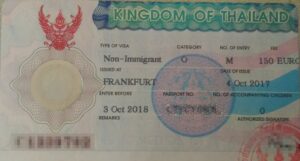Registering a limited company in Thailand is a strategic step for entrepreneurs looking to tap into the country’s vibrant business landscape. A Thai limited company offers a versatile business structure that balances liability protection with operational flexibility. This article provides a comprehensive overview of the Thai limited company registration process, highlighting its key benefits, legal requirements, steps involved, and its role in fostering business growth in Thailand.
Benefits of Thai Limited Company Registration:
Thai limited company registration offers several advantages that attract both local and foreign entrepreneurs:
- Limited Liability: Shareholders’ liability is limited to their capital contributions, protecting personal assets in case of business losses or liabilities.
- Separate Legal Entity: A Thai limited company is recognized as a distinct legal entity, separate from its shareholders, providing enhanced credibility.
- Access to Markets: A registered limited company can access local and international markets, participate in government tenders, and engage in various business activities.
- Foreign Ownership: Foreign nationals can own up to 49% of the shares in certain industries, allowing for foreign investment and collaboration.
- Tax Efficiency: Thai limited companies may benefit from favorable tax rates and incentives for specific industries.
Legal Requirements for Thai Limited Company Registration:
To successfully register a Thai limited company, entrepreneurs must meet specific legal requirements:
- Minimum Capital: While there is no minimum capital requirement, the capital should be sufficient for the company’s intended activities.
- Shareholders: A Thai limited company must have at least three shareholders. Foreign ownership restrictions apply in certain sectors.
- Directors: A minimum of one director is required, and they must be at least 20 years old.
- Registered Office: A physical address within Thailand is required for company registration.
- Company Name: The company name must be unique, not resemble existing companies, and comply with Thai naming regulations.
Thai Limited Company Registration Process:
The registration process involves several steps:
- Name Reservation: Reserve a unique company name with the Department of Business Development (DBD).
- Prepare Incorporation Documents: Prepare the memorandum of association and articles of association outlining the company’s structure, objectives, and rules.
- Signatures and Notarization: The memorandum and articles of association must be signed by all shareholders and directors and notarized by a notary public or a lawyer.
- Capital Deposit: Deposit the registered capital into a corporate bank account in the company’s name.
- Submit Documents to DBD: Submit the required documents, including application forms, to the DBD for company registration.
- Tax Identification Number (TIN) and VAT Registration: Obtain a TIN from the Revenue Department and register for VAT if applicable.
- Social Security Registration: Register the company and its employees with the Social Security Office.
Role of Legal Professionals:
Engaging legal professionals is advisable during the Thai limited company registration process:
- Legal Expertise: Attorneys can guide entrepreneurs through the legal intricacies and ensure compliance with Thai laws.
- Document Drafting: Lawyers can draft and review the company’s memorandum and articles of association.
- Regulatory Compliance: Attorneys ensure that all necessary documents are properly notarized and submitted according to legal requirements.
Post-Registration Considerations:
After registering a Thai limited company, entrepreneurs should be aware of ongoing responsibilities:
- Financial Reporting: Thai limited companies are required to maintain financial records and prepare annual financial statements.
- Annual Meeting: Companies must hold an annual general meeting of shareholders.
- Tax Filing: Submit annual tax returns and other required tax filings.
- Work Permits: For foreign directors and employees, obtaining work permits and visas is necessary.
Fostering Business Growth in Thailand:
Thai limited company registration plays a pivotal role in fostering business growth:
- Investment Opportunities: Registering a Thai limited company opens doors for local and foreign investment, contributing to economic growth.
- Market Entry: A registered limited company can establish a strong presence in Thailand’s diverse markets, promoting business expansion.
- Local and Global Operations: Thai limited companies can engage in various business activities, both within Thailand and internationally.
- Business Credibility: A registered limited company enjoys higher credibility among customers, partners, and stakeholders.
Conclusion:
Registering a Thai limited company is a strategic move for entrepreneurs seeking to capitalize on Thailand’s dynamic business environment. By providing liability protection, operational flexibility, and access to local and international markets, a limited company serves as a strong foundation for business growth. While navigating the legal requirements and registration process can be intricate, engaging legal professionals ensures compliance, minimizes risks, and paves the way for entrepreneurs to establish a robust business presence in Thailand.






















